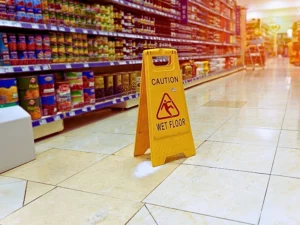How much is a Legionnaires’ disease lawsuit worth if you contract an infection while visiting Las Vegas, Nevada? The value of a Legionnaires’ disease lawsuit depends on several factors, including the severity of the injuries, medical treatment, and the resulting permanent effects on the victim’s life. Despite advances in sanitation, unsuspecting tourists still become infected with Legionnaires’ disease while visiting Las Vegas. Fortunately, injured victims can file lawsuits for financial compensation against the establishments where they became infected.
Damages Available in a Legionnaires’ Disease Lawsuit
While the average payout of a personal injury claim varies, the value of a Legionnaires’ disease lawsuit depends on the specific facts of each case. The value of your Legionnaires’ disease lawsuit depends on the extent of your illness and the cost of your medical care. You may obtain higher financial compensation if you experienced a prolonged period of hospitalization. You may be entitled to additional compensation if your hospitalization was particularly severe and involved you staying in an intensive care unit. Further, you may be entitled to additional compensation if your infection resulted in long term nerve or heart damage.
Nevada Law allows victims to claim three types of damages in a personal injury lawsuit. Damages is another way of describing the losses a victim suffered. A victim can claim economic damages for the cost of his or her past and future medical treatment and past and future lost wages.
A victim can also claim non-economic damages for the pain and suffering he or she endured, along with the permanent effects his or her injury caused. A victim can also seek punitive damages if the opposing party acted malicious. Unlike economic and non-economic damages, punitive damages are designed to punish a negligent party. Awards for punitive damages, and awards for lost wages, are subject to the injury settlement tax.
Hire the Right Legionnaires’ Disease Attorney to Handle Your Case
If you were infected with Legionnaires’ Disease, you are going to need an experienced personal injury lawyer to make sure your rights are protected. The attorney you hire to handle your case plays a significant role in the amount of compensation you receive.
Legionnaires’ Disease attorney George T. Bochanis has a strong track record for obtaining large settlements and verdicts on behalf of his clients. In fact, he negotiated one of the largest settlements ever in a Legionnaires Disease case. When a Nevada hotel guest contracted Legionnaires’ Disease as a result of the hotel’s improperly maintained water system, George obtained a $230,000 settlement in the legionnaires’ disease lawsuit. The substantial settlement enabled his client to pay for medical treatment, replace lost wages, and regain financial security.
What Is Legionnaires’ Disease?
Legionnaires’ disease, or legionella pneumophila disease, is a deadly and contagious form of pneumonia. Specifically, it causes victims to develop potentially lethal lung infections. Mild cases of Legionnaires’ disease can cause victims to develop Pontiac fever. While this is not as severe as pneumonia, it can still incapacitate innocent victims.
Legionnaires’ disease can be treated with antibiotics. However, severe cases can lead to the death of infected individuals. Innocent victims and their families should consult a legionnaires’ disease lawyer if they suffered an injury as a result of becoming infected with Legionnaires’ disease.
How Do You Get Legionnaires’ Disease?
People contract Legionnaires’ disease as a result of exposure to Legionella bacteria. These bacteria develop primarily in water systems such as lakes, creeks, and streams. In Las Vegas, it can be found in the plumbing and ventilation systems for large buildings such as hotels. Specifically, Legionella bacteria are found on a variety of surfaces and settings, such as:
- Shower heads and faucets
- Hot tubs
- Plumbing systems
- Fountains
- Air conditioning units
- Water heating units
Due to the extensive systems and surfaces which may be contaminated with Legionella bacteria, unsuspecting hotel guests become infected with Legionnaires’ disease as a result of ingesting small droplets of water contaminated with Legionella bacteria. Direct contact with contaminated water or person to person contact is not necessary for a victim to become infected. Instead, unsuspecting tourists can become infected by simply inhaling air containing droplets of contaminated water in addition to drinking contaminated water.
Signs and Symptoms of Legionnaires’ Disease
Legionnaires’ symptoms are often delayed. Victims who become infected with Legionnaires’ disease typically develop symptoms within 2 to 14 days after becoming infected. The symptoms of Legionnaires’ disease are often mistaken for the simple flu. Following an infection, victims begin experiencing fever, muscle pain, headaches, coughing, and shortness of breath. Victims with mild infections only suffer from Pontiac Fever. Fortunately, Pontiac Fever does not require medical intervention such as antibiotics. Victims who developed Pontiac fever often recover within one week.
While seemingly minor, Legionnaires’ symptoms can develop into a deadly form of pneumonia. Specifically, Legionnaires’ disease can cause a buildup of fluid in the lungs of infected victims. This buildup of fluid can impair a victim’s ability to breathe. Legionnaires’ disease results in the death of approximately 10% of infected victims.
Complications From Legionnaires’ Disease Infections
Those who contract Legionnaires’ disease sometimes develop lethal medical complications. Specifically, victims who suffer from acute kidney failure lose the ability to filter and eliminate harmful waste from their bloodstreams. Additionally, victims who fall into septic shock suffer multiple organ failure. Victims affected with endocarditis and pericarditis suffer infections of the tissues and membranes surrounding their hearts.
These infections can cause long-term damage to heart tissue and valves. Victims can also develop Guillain-Barré syndrome, which can cause paralysis due to damaging the nervous system. Most lethally, victims who suffer respiratory failure often do not recover. Victims with severe cases of Legionnaires’ disease usually require hospitalization in addition to extensive antibiotic therapy to fully recover.
Can I File a Legionnaires’ Disease Lawsuit?
You can file a lawsuit as a result of becoming infected with Legionnaires’ disease. A successful lawsuit requires you to prove all the elements of your care by a preponderance of the evidence, i.e., 51%.
Specifically, you must prove you were exposed to Legionella bacteria. Additionally, you must prove your exposure to Legionella bacteria occurred while you were staying or visiting the establishment which you are suing. You must also prove your exposure occurred due to the property owner’s negligence. Finally, you must prove you developed Legionnaires’ disease and suffered damages as a result of your exposure.
Due to the legally and factually complex nature of cases involving infections and injuries due to Legionnaires’ disease, extensive investigation and preparation are required. Specifically, Legionnaires’ disease lawsuits usually require testimony by expert witnesses. This level of investigation and preparation is necessary due to Nevada’s strict two-year statute of limitations, and may aid in determining how much a Legionnaires’ disease lawsuit is worth.





